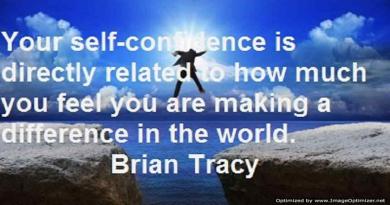Balancing Ego and Confidence: Cultivating True Self-Esteem

Individuals often struggle with finding the delicate equilibrium between ego and confidence in their pursuit of authentic self-esteem. Let’s take the example of Sarah, a highly motivated professional driven by a strong ambition to succeed. While her ego serves as a driving force, it also exposes her to feelings of insecurity.
Understanding the distinction between ego and confidence holds paramount importance. This piece explores the impact of ego and confidence on self-worth and provides strategies for nurturing true self-esteem.
By achieving a harmonious balance between ego and confidence, individuals can foster a healthy sense of self and a profound feeling of belonging.
Understanding the Role of Ego in Self-Esteem
The ego plays a significant role in shaping an individual’s self-esteem. An excessively inflated ego can lead to an inability to accept criticism or failure. When the ego is overly inflated, individuals may struggle to perceive their flaws or acknowledge areas for growth. This can impede personal development and create a barrier to forming meaningful connections with others.
People who desire to belong often value humility and authenticity. An excessively inflated ego can overshadow these traits. By recognizing the impact of ego on self-esteem, individuals can work towards finding a balance between confidence and humility.
This involves cultivating a healthy sense of self-worth based on genuine self-acceptance and acknowledging strengths and weaknesses. By doing so, individuals can foster deeper connections and create a sense of belonging within their communities.
Differentiating Between Confidence and Ego
Differentiating between confidence and ego can be difficult, but it is vital for understanding one’s self-worth.
For an audience seeking a sense of belonging, it is important to recognize that confidence stems from a deep belief in oneself and a willingness to accept the consequences. It involves owning achievements and understanding one’s abilities and limitations.
On the other hand, ego is an exaggerated view of oneself, often rooted in insecurity. It seeks validation and superiority over others, resulting in a sense of entitlement and self-centeredness. While confidence is about self-assurance, ego focuses on self-importance.
The Impact of Ego and Confidence on Self-Worth
Understanding the impact of ego and confidence on self-worth is vital for individuals looking to develop a healthy sense of self.
When the ego is inflated, it can lead to a false sense of superiority, causing individuals to prioritize their gain over the well-being of others. This can create a sense of disconnection and hinder the development of meaningful relationships.
On the flip side, confidence rooted in self-assurance allows individuals to embrace their strengths and weaknesses, fostering a sense of connection and belonging. Confidence empowers individuals to face challenges with courage and inspire others through their actions.
Strategies for Building True Self-Esteem
Embracing vulnerability and setting boundaries are vital for individuals seeking to cultivate a healthy sense of self-worth.
By embracing vulnerability, individuals open themselves up to the possibility of growth and connection. It enables them to be authentic and sincere, leading to deeper relationships and a stronger sense of belonging.
Setting boundaries is equally crucial in constructing self-worth. It entails asserting one’s needs and priorities and refusing when necessary. By setting boundaries, individuals communicate their self-worth and ensure that their own well-being is prioritized. This empowers them and prevents them from being taken advantage of or overwhelmed.
Ultimately, embracing vulnerability and setting boundaries are key components in developing a robust sense of self-worth and nurturing a sense of belonging within oneself and in relationships with others.
Balancing Ego and Confidence for Healthy Self-Esteem
Maintaining a healthy sense of self-worth involves finding a balanced and harmonious equilibrium between one’s personal ego and confidence level.
Balancing ego and confidence is essential for cultivating genuine self-esteem. For individuals who desire a sense of belonging, it is essential to understand that ego and confidence are not interchangeable.
Ego refers to an inflated view of oneself, often from insecurity, while confidence is grounded in self-assurance and the ability to recognize strengths and weaknesses.
A healthy sense of ego allows individuals to believe in themselves and make decisions without self-doubt. Conversely, confidence comes from a deep belief in one’s abilities and a willingness to accept the consequences of their actions.
Frequently Asked Questions
How Can a Healthy Sense of Ego Positively Impact Self-Esteem?
A strong and healthy ego has a positive impact on self-esteem by instilling individuals with confidence and a belief in their own abilities. It enables them to recognize their worth and value, creating a heightened sense of self and overall well-being. This article will explore how a healthy ego can positively influence self-esteem.
To begin with, a well-developed ego allows individuals to have a deep understanding and appreciation of their own capabilities. This understanding, in turn, fosters a sense of confidence that propels them forward in various aspects of life. Instead of doubting themselves or being plagued by insecurities, they are able to approach challenges with a level of assurance that stems from their strong ego.
Furthermore, a healthy ego helps individuals to recognize their unique strengths and talents. This self-awareness not only boosts their self-esteem but also allows them to capitalize on their abilities. By acknowledging their own worth, they are more likely to pursue opportunities that align with their skills and passions. This sense of purpose and fulfillment further enhances their self-esteem and overall well-being.
Moreover, a strong ego enables individuals to establish healthy boundaries and assert themselves when necessary. They can prioritize their own needs and desires without feeling guilty or compromising their self-esteem. This assertiveness is crucial in maintaining healthy relationships and ensuring that their well-being is not compromised for the sake of others.
What Are Some Signs That Someone Has a Low Self-Esteem and a Big Ego?
Signs indicating low self-esteem and a big ego encompass an incapacity to embrace criticism, an incessant yearning for validation, an air of arrogance, and a proclivity to prioritize personal gain above others.
In light of these indicators, it becomes evident that individuals with low self-esteem and a big ego struggle with accepting any form of critique. Instead of acknowledging and learning from constructive feedback, they tend to dismiss or deflect it altogether. This behavior stems from their deep-rooted insecurities and fear of being exposed or judged.
Furthermore, a constant need for validation is another sign of individuals grappling with low self-esteem and a big ego. They incessantly seek approval and affirmation from others to compensate for their lack of self-worth. This insatiable hunger for validation often leads them to engage in attention-seeking behaviors and overt displays of self-importance.
Equally important, individuals with low self-esteem and big ego often exude an air of arrogance. They believe they are superior to others and demonstrate this through their condescending attitude and dismissive behavior. This arrogance serves as a defense mechanism to shield themselves from their insecurities and feelings of inadequacy.
By the same token, these individuals prioritize their own gain over others. Their sense of entitlement and self-centeredness drives them to manipulate situations and people to ensure their success, often at the expense of those around them. They lack empathy and fail to consider the needs and feelings of others.
Are There Any Negative Effects of Having Too Much Confidence?
Are There Any Negative Effects of Having an Excessive Amount of Confidence?
Excessive confidence may result in arrogance and a sense of entitlement, which can harm relationships and personal development. It is essential to strike a balance between confidence and humility, as well as maintain self-awareness for genuine self-esteem.
To truly understand the potential negative impacts of having excessive confidence, it is necessary to delve into the consequences it can have on various aspects of life. Arrogance, stemming from an inflated sense of self-importance, can lead to strained relationships and hinder personal growth. This is particularly evident in interpersonal interactions, where individuals with excessive confidence may disregard the opinions and feelings of others, resulting in conflicts and damaged connections.
Furthermore, an excessive amount of confidence often breeds a sense of entitlement. This entitlement mentality can manifest in various ways, such as expecting special treatment or deserving of success without putting in the necessary effort. Such an attitude hampers personal growth and alienates others who may perceive it as unfair or unjust.
In light of these adverse effects, it becomes crucial to balance confidence and humility. While confidence is essential for achieving success and overcoming challenges, it should be accompanied by humility to maintain healthy relationships and foster personal development. Humility allows individuals to acknowledge their limitations and appreciate the perspectives and contributions of others.
Not to mention, self-awareness plays a vital role in cultivating genuine self-esteem. By recognizing one’s strengths and weaknesses, individuals can develop a more realistic and accurate perception of themselves. This, in turn, promotes personal growth and fosters healthier relationships based on mutual respect and understanding.
Learn More!!!! 11 Essential Oils For Self Confidence And Self Esteem
How Can Someone Differentiate Between Genuine Confidence and an Inflated Ego?
Differentiating between genuine confidence and an inflated ego can be quite a challenge. Genuine confidence is deeply rooted in self-assurance and a realistic understanding of one’s abilities, while an inflated ego is characterized by arrogance and insecurity cleverly disguised as confidence. This distinction can be quite tricky to unravel, especially when considering the subtleties of human behavior.
When attempting to distinguish between these two, it is important to delve into the essence of the individual’s demeanor and actions. Genuine confidence emanates from a place of authenticity and inner strength. It is not simply about boasting or seeking validation from others. Instead, it is a quiet assurance that comes from knowing one’s worth and capabilities.
Additionally, a key factor in differentiating between genuine confidence and an inflated ego is the way in which individuals handle criticism and setbacks. Those with genuine confidence are open to feedback and are willing to learn and grow from their mistakes. They understand that no one is perfect and recognize the value in continuous improvement.
On the other hand, individuals with an inflated ego often struggle to accept criticism. They may become defensive or dismissive, unwilling to acknowledge their own flaws or shortcomings. This defensiveness stems from deep insecurity masked by a false sense of superiority.
Furthermore, genuine confidence is marked by humility. Confident individuals do not need to prove themselves or seek validation from others constantly. They are secure in their abilities and are comfortable with their strengths and weaknesses. In contrast, those with an inflated ego often seek external validation and constantly strive to be at the center of attention.
To distinguish between genuine confidence and an inflated ego, one must pay attention to the way in which individuals interact with others. Genuine confidence is inclusive and respectful, appreciating the strengths of others and fostering a sense of collaboration. In contrast, an inflated ego often manifests in a dismissive and condescending attitude towards others, belittling their contributions.
Can Building True Self-Esteem Help in Overcoming Ego-Related Issues?
Building genuine self-esteem can aid individuals in overcoming ego-related challenges. By fostering a profound sense of self-worth and acceptance, individuals can release their dependence on validation and embrace humility, leading to healthier relationships and personal development. In this write-up, we will explore the importance of genuine self-esteem and how it can positively impact various aspects of life.
To begin with, delving into the depths of one’s true self is crucial for building authentic self-esteem. By recognizing and accepting their unique qualities and strengths, individuals can cultivate a strong foundation of self-worth. This process allows them to let go of the constant need for external validation. Instead, they become more self-assured and rely on their own internal validation, which is far more fulfilling and sustainable.
Secondly, genuine self-esteem fosters humility, an essential trait for personal growth. Acknowledging their limitations and imperfections makes individuals more open to learning and self-improvement. They understand that they are not infallible and can benefit from the wisdom and experiences of others. This humility creates an environment conducive to building healthier relationships, as it promotes empathy, understanding, and the ability to connect with others on a deeper level truly.
Moreover, developing true self-esteem allows individuals to break free from the shackles of ego. Ego often leads to a self-centered perspective, where one’s own desires and needs overshadow those of others. By embracing genuine self-esteem, individuals shift their focus from themselves to collective well-being, recognizing the interdependence of all beings. This shift in mindset promotes a sense of unity and cooperation, leading to more harmonious relationships and a greater sense of purpose.
Furthermore, genuine self-esteem enables individuals to navigate challenges and setbacks with resilience. Individuals with a strong sense of self-worth are better equipped to handle criticism and rejection. They understand that external opinions do not determine their value and can bounce back from failures with grace and determination. This resilience is crucial for personal growth and allows individuals to pursue their goals and aspirations without fear of judgment or failure.
Conclusion
Balancing ego and confidence plays a vital role in cultivating genuine self-esteem. By comprehending the role of ego in self-worth and distinguishing it from confidence, individuals can strive towards a healthier sense of their own value.
It is worth noting that a study conducted by the Journal of Personality and Social Psychology discovered that individuals with high self-esteem were more prone to having a well-rounded perception of themselves, acknowledging both their strengths and weaknesses. This emphasizes the significance of embracing imperfections and deficiencies in order to construct genuine self-esteem.







